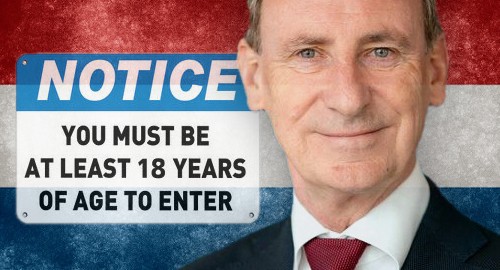 Netherlands online gambling hopefuls likely won’t enjoy the process of applying for new licenses, according to the local regulatory chief.
Netherlands online gambling hopefuls likely won’t enjoy the process of applying for new licenses, according to the local regulatory chief.
On Tuesday, Kansspelautoriteit boss René Jansen gave a speech at the Gaming In Holland breakfast, at which he claimed to share operators’ frustration at the slow pace of the Dutch online gambling market’s transition to an open licensing model.
Jansen (pictured) said the regulatory delays weren’t all bad, in that the Netherlands could end up with “the world’s strictest addiction prevention policies.” Online license applicants will be required to offer up volumes of detail regarding their responsible gambling policies and Jansen warned that the KSA “will definitely find out if your measures only exist on paper.”
Jansen warned that operators’ marketing practices will also be scrutinized, including their use of bonus offers, ensuring players are not incentivized to gamble, avoiding misleading or aggressive advertising, and how these various responsibilities will be assigned within a company. Again, Jansen warned that the KSA “won’t accept situations that merely look good on paper.”
As for more technical aspects such as a central self-exclusion registry and data storage, Jansen said the KSA would hold “information meetings” in the first half of 2020 to discuss IT-related issues.
Earlier this month, the KSA added age verification to its criteria for judging how harshly to punish unauthorized online gambling providers that continue to do business with Dutch punters. As of January 1, operators that fail to “visibly verify the age of participants before the registration process is completed” will face a fine.
The KSA noted that operators must use an “objective means of proof” to determine a customer’s age and “it must be clear to players how their age is being verified.” Any operator whose verification process is found lacking could also find itself ineligible for a new KSA online gambling license.
Jansen urged would-be licensees to screen both new customers and their existing player databases using the IDIN verification system developed by Dutch banks to ensure everyone is of legal age.
Meanwhile, the Kindred Group has decided to pay the €470k penalty issued against its Unibet brand in August for serving Dutch customers without the KSA’s permission. After originally declaring that it would appeal the ruling, Kindred has decided not to risk having its license application stamped with the word ‘cowboy’ and slid to the bottom of the pile.